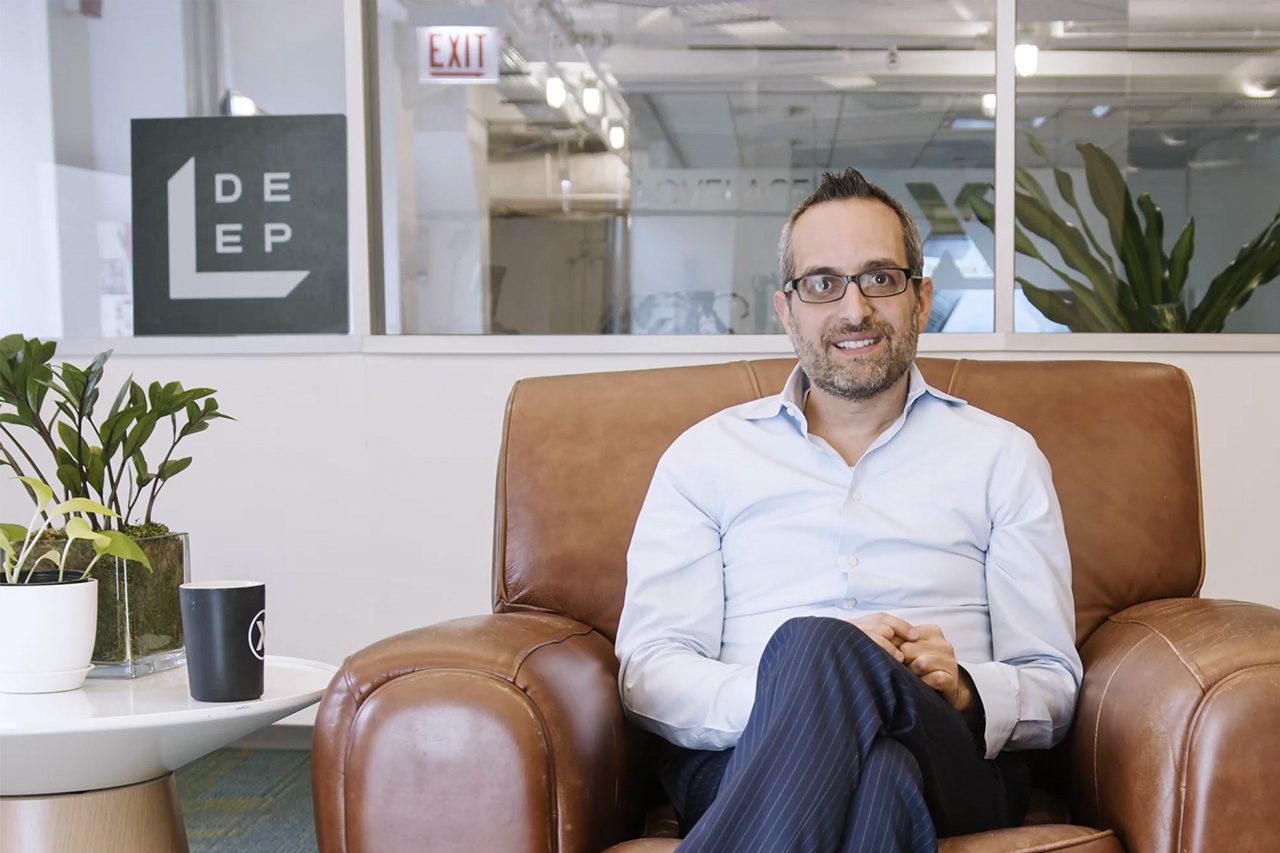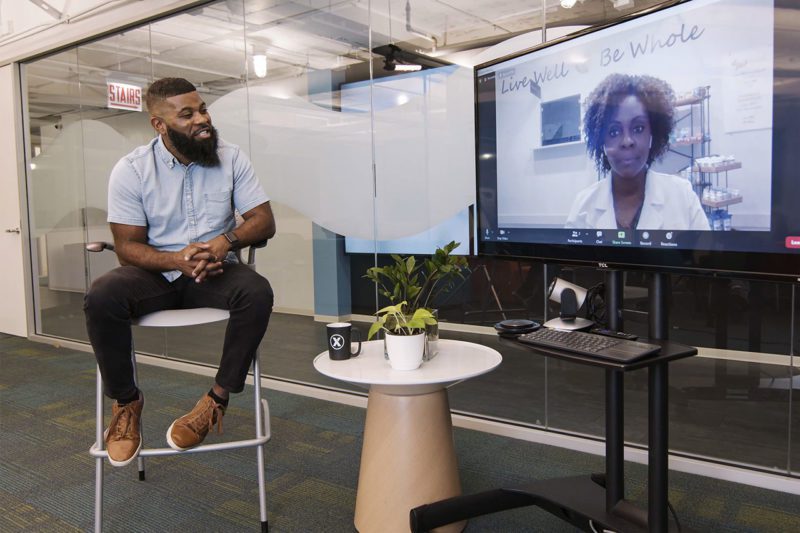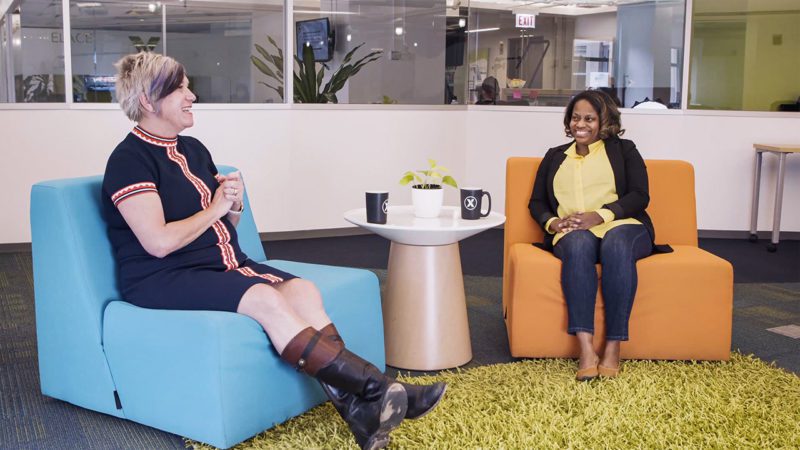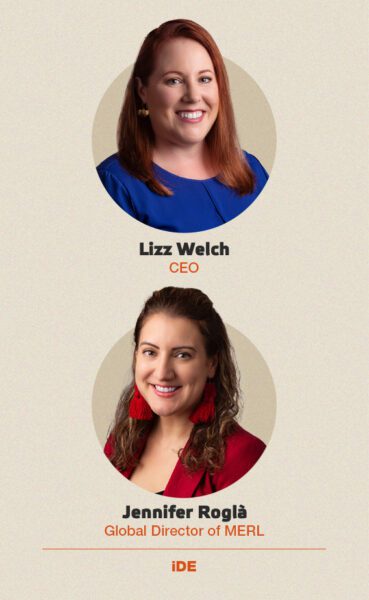Do Good at Work
A conversation with author Bea Boccalandro
A Conversation with Todd Khozein of SecondMuse

Project DEEP (Developing Equitable Economies Program) aims to disrupt the status quo in entrepreneurship and investing and unlock equitable wealth creation for underrepresented entrepreneurs and investors. In this Q&A, Project DEEP course instructor and entrepreneur Todd Khozein discusses how to build inclusive economic systems.
Todd Khozein is the CEO and Co-Founder of SecondMuse, a global impact and innovation company dedicated to creating equitable economies. While studying the widespread effects of tuberculosis in an indigenous community in Mexico and working with healthcare workers to cure the community of the disease, Todd saw how systems of inequality were harming people. This experience motivated him to focus on solving underlying social and economic systems imposing inequality.
Todd Khozein on creating equitable economies
Todd co-founded SecondMuse, which operates on the belief that current economic systems are based on a history of power, privilege, and oppression that limits humans and harms the planet — but that it does not have to be this way. SecondMuse works to use intentional design and radical collaboration to create more efficient economies that benefit people and the planet. Their work centers on uplifting entrepreneurs as changemakers, supporting ecosystem development, and designing and distributing investment funds.
In Designing Economies for People and Planet, one of the six courses in Sorenson Impact Center’s Project DEEP, Todd joins other SecondMuse project leaders to discuss their work to create just and inclusive economic systems. The course introduces five innovative programs that model values to manifest change, from advancing climate technologies in New York to driving gender equity in tech in Chicago to reducing ocean plastics in Asia. In this interview, Todd discusses the importance of supporting entrepreneurs from historically marginalized backgrounds and developing connections to build relational wealth and diverse, human-centered economies.
Project DEEP centers on the need to change our systems and power structures in order to remove barriers for women and people of color to be successful entrepreneurs and investors. How does your work further this goal?
One of our core beliefs at SecondMuse is that true economic success and social justice will only be achieved when all humans have equitable opportunities to bring their unique brilliance into our collective future. Our work is deeply focused on providing tailored support to innovators, entrepreneurs, and other changemakers who have been systematically excluded from our economies and society at large while working to make the broader economies in which these changemakers exist more just and inclusive.

We do this by identifying economies that are emerging or transitioning, where we believe we can have the most impact, whether the climate tech economy in New York State or the economy rapidly developing in the U.S. around digital platforms that center the needs and well-being of underserved youth.
We then engage deeply with actors in those economies — especially those facing barriers to inclusion — to understand the support from which they can benefit. This engagement helps us collaboratively design programming that develops the capacities changemakers need to thrive and that builds their relational wealth by strategically connecting them to a peer network, mentors, potential funders, and others with the systemic power to help them realize and scale their visions. At the same time, we deeply engage with members of the broader ecosystem — from investors and policymakers to academics and corporate professionals — to support them in advancing equity and inclusion.
Please share one of your favorite moments from your experience with this project.
It’s always very emotional for me to share my story and personal journey, but I’m so grateful for the opportunity to talk about how my experiences have influenced my beliefs and approach to supporting entrepreneurs and the ecosystems around them.
I’ve been so energized by the conversations I’ve had with colleagues and others in my network about the most pressing issues facing entrepreneurs. I hope these sessions support not only our target entrepreneurs but also VCs and institutions that are positioned to solve societal and environmental issues through innovation.
What do you hope someone will take away from this course?
I want people to first and foremost understand that barriers to entrepreneurship and economic inclusion have been designed into our economies. They are not aberrations or mistakes. They are the result of systems functioning as they were intended to — with a small minority reaping great benefits at the expense of everybody else. We all have the opportunity to design emerging economies in a truly just and inclusive way.
Barriers to entrepreneurship and economic inclusion have been designed into our economies. They are not aberrations or mistakes.
I also want people to realize the benefits we all stand to gain by making entrepreneurial ecosystems just and inclusive. Diversity is the holy grail of innovation. The more ideas, perspectives, and experiences we have at the table, the faster innovation will flow, the better that innovation will be, and the more resilient our economies will become.
In terms of solutions, what is the top change you would like to see to better support underestimated entrepreneurs in the ecosystem? What one thing would make the biggest difference?
If investors, potential mentors, and other people from the entrepreneurial ecosystem took the time to engage with underestimated entrepreneurs, they wouldn’t underestimate them anymore. The single thing that would make the biggest difference to these entrepreneurs is more dedication within the ecosystem to develop human connections with people outside of their usual circles. Relational wealth — a wealth of human connections — enables any entrepreneur to succeed. So those who never have a fair chance to establish those connections will never access the resources, support, and capital they need to launch or scale their businesses. I hope that this program and other efforts like it can build the relational wealth of entrepreneurs and educate investors and other ecosystem actors about the brilliance these underestimated people have to offer their communities, investors, and the wider world.

What is a human-centered economy? Why do we need to reimagine capitalism?
A human-centered economy values all of the people within it. Our current economy values profit over people, which is why we see poverty, poor working conditions, lack of healthcare, and dignified housing, and all the other problems that stem from an economy that is willing to accept almost anything that continues to enrich the very rich. A human-centered economy that values all people will incentivize investments and business decisions that are good for people and communities. This will automatically shift existing power structures and make our economies more just and resilient.
What is required to develop economies that are more inclusive and serve more people? How does this not only benefit more entrepreneurs but help us solve pressing problems?
We need to better connect entrepreneurs from historically marginalized backgrounds with organizations, investors, mentors, and others who have the systemic power to support and scale their businesses.
We also need to identify and work to overcome systemic barriers that have resulted in economies that are fundamentally not inclusive. One of the ways we do that is by educating members of the ecosystem about the limitless opportunities of a diverse and inclusive economy. Diversity always leads to resilience: it’s true in nature, and it’s true economically. The more ideas, perspectives, and experiences that are valued and supported within an economy, the better positioned that economy will be to problem-solve and adapt.
Related Content
Comments
Deep Dives
RECENT
Editor's Picks
Webinars

Featuring
Lizz Welch & Jennifer Roglà
iDE
May 16 - 12:00 PM EST
News & Events
Subscribe to our newsletter to receive updates about new Magazine content and upcoming webinars, deep dives, and events.
Become a Premium Member to access the full library of webinars and deep dives, exclusive membership portal, member directory, message board, and curated live chats.
0 Comments